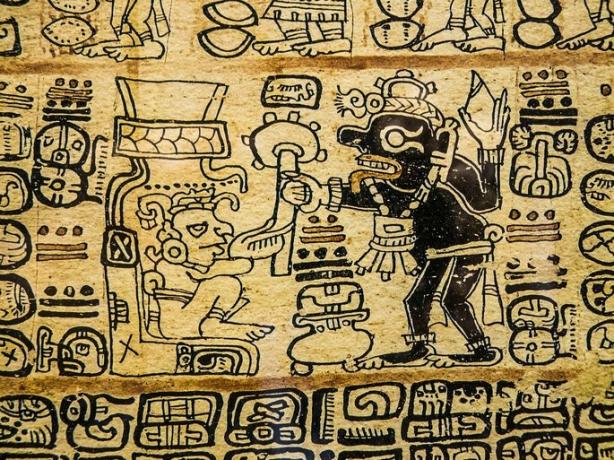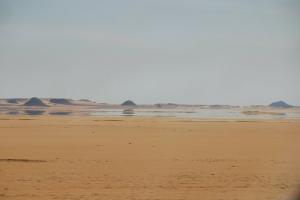22 examples of hypotheses
A hypothesis is the most likely answer or solution to a research problem. They are the propositions or assumptions made by the researcher to try to explain a certain fact, based on prior knowledge, which is used to conduct the research.
An essential condition of any hypothesis is that it can be tested, that is, it can be shown whether it is true or false. For example, saying that a phenomenon is produced by an imaginary being is not provable, and therefore does not serve as a hypothesis.
Here are some examples of hypotheses.
Examples of hypotheses in natural sciences
1. Biological decomposition of plastics
Cows are herbivorous mammals whose diet is based on plant molecules similar to plastic polymers. In the stomach of these animals there are microorganisms responsible for the digestion of plant cellulose polymers.
Hypothesis: If bacteria can break down cellulose polymers, they can probably break down some types of synthetic plastics.
2. Presence of water in outer space
On Earth, clouds are formed by the condensation of water in the atmosphere.
Hypothesis: If there are clouds on some planets, then it is due to the presence of water.
3. Extraterrestrial origin of life on Earth
In some meteorites, organic molecules have been detected that are very similar to some components of cell membranes.
Hypothesis: The origin of life on Earth may come from meteorites that collided with the planet.
4. Gray hair and stress
In general, gray or white hair is the result of aging and heredity. However, public cases are known such as some presidents who when they start their term have dark hair and after a few years they begin to show gray.
Hypothesis: Stress accelerates hair color loss.
5. Education and the brain
Dementia is a mental illness characterized by memory impairment and changes in behavior. On the other hand, people who perform activities that require greater mental concentration maintain a better brain structure.
Hypothesis: People with a higher level of education have a lower risk of suffering from dementia.
6. The migration of birds
Some species of birds move from one region of the Earth to another to escape cold temperatures and prepare for the breeding season. Climate change due to global warming is altering the temperature conditions in many regions.
Hypothesis: Temperature changes due to climate change could be modifying the migration patterns of birds.
7. Future of coral reefs
Coral reefs are ecosystems of great value to humans. The main structure is made of calcium carbonate, a salt made up of calcium, carbon, and oxygen. This salt reacts with carbon dioxide to form a compound that dissolves in water.
Hypothesis: The increase in carbon dioxide in the oceans will cause the dissolution of calcium carbonate in the reefs, causing the support for life in this ecosystem to disappear.
8. Cleaning and allergies
Allergies are excessive reactions of the immune system against food or other substances when they come into contact with the body, which has been on the rise in recent years. Also recently, health conditions, particularly in relation to care and the environment where babies develop, have improved worldwide.
Hypothesis: More controlled environments and greater hygiene measures during infancy and childhood have resulted in an increase in allergies in recent decades.
9. Heat tolerant plants and food safety
Many regions of the world have problems with the supply of water for crops, a situation that is going to get worse with global warming and that may endanger security food.
Hypothesis: If edible plants are developed so that they can grow in dry environments, we can ensure the production of food for the human and animal population in the future.
10. Solar energy at night
Solar panels generate electricity during the day while receiving solar radiation. However, at night or on very cloudy days this option is not available.
Hypothesis: The discovery or development of a construction material that serves to store solar energy during the day will serve to protect and generate energy in a sustainable way.
11. Vaccination and cancer
Cancer is a very complex disease that is treated with surgery, chemotherapy, or radiation therapy. Vaccines are substances that activate immune cells, responsible for attacking invaders in the human body.
Hypothesis: The creation of a vaccine that recognizes specific components of an abnormal cell could prevent the appearance of tumor cells and prevent cancer.
You may also be interested in seeing:
- Natural Sciences and Social Sciences
- Types of research.
Examples of hypotheses in social sciences
12. The decline of indigenous cultures in America
In pre-Columbian America, the Mayan, Aztec and Inca cultures flourished and came into contact with Europeans at the end of the 15th century. The colonizers, in addition to bringing new technologies and knowledge, also brought new pathogens with them.
Hypothesis: The indigenous populations of the American continent were reduced after colonization by Europeans due to diseases transmitted by the colonizers.

13. The origin of the domesticated dog in America
There is a belief that the dog was brought by European conquerors to the American continent during the colonization process. However, statuettes and paintings of dog-like animals have been found in Aztec cultures.
Hypothesis: the dog came to America together with human populations that migrated to the continent long before colonization by Europeans.
14. Floods and distraction
In some low-lying areas or near rivers, floods occur at times of the year with constant rainfall. This makes the construction and use of these zones difficult. In addition, in areas where there are already buildings, floods make movement difficult and damage buildings.
Hypothesis: If a floodplain is designed, this space could be used both in the rainy season and throughout the year.
15. Education and Internet
People spend much of their free time surfing the Internet. This time could be used to learn new skills.
Hypothesis: An attractive educational content for the different Internet platforms would stimulate the efficient use of the time spent surfing the Internet.
16. Online classes vs. face-to-face classes
The model of classes in schools is being gradually displaced by the model of teaching through the Internet.
Hypothesis: Students who study through online classes perform better than students who receive face-to-face classes.
17. Investigation criminal
Investigation is key in policing. In a crime scene, investigating every detail provides key information to discover who the criminal is.
Hypothesis: If several crimes have factors in common, the perpetrator is probably the same person.
18. Education and crime
Most offenders are people with a low level of education. After serving his sentence, the return of the ex-convict to society often runs in parallel with the return to bad steps.
Hypothesis: Education programs in prisons will favor people who have served their punishment to reintegrate into society.
19. Remote work and rural areas
Information and communication technologies (ICT) have revolutionized the way many human activities are carried out. In this sense, many employees can carry out their work from home via the Internet.
Hypothesis: the implementation of ICTs for remote work drives the migration of people from overcrowded cities to rural towns with good connections.
20. Risk of financial crises
In the world there have been many and very diverse economic crises in different countries.
Hypothesis: Common factors in different financial crises over the years can serve as predictive indicators of new crises.
21. Work hours and personal satisfaction
In many parts of the world, working hours are fixed from 9 am to 5 pm, Monday through Friday. However, there are people who are more productive at different times.
Hypothesis: If people can choose the time where they feel more comfortable then they will have a better performance and work effectiveness.
22. The hospitable atmosphere in the minds of hospitalized children
Being sick is not a pleasant situation, even worse if you have to be hospitalized for a long time. Children may feel more frightened in a cold and unwelcoming hospital environment.
Hypothesis: Introducing color in pediatric wards improves the mood of children admitted to the hospital.
You may also be interested in seeing:
- Types of research
- Quantitative and qualitative research

Doctor in Biochemistry from the Venezuelan Institute of Scientific Research (IVIC), with a degree in Bioanalysis from the Central University of Venezuela.


